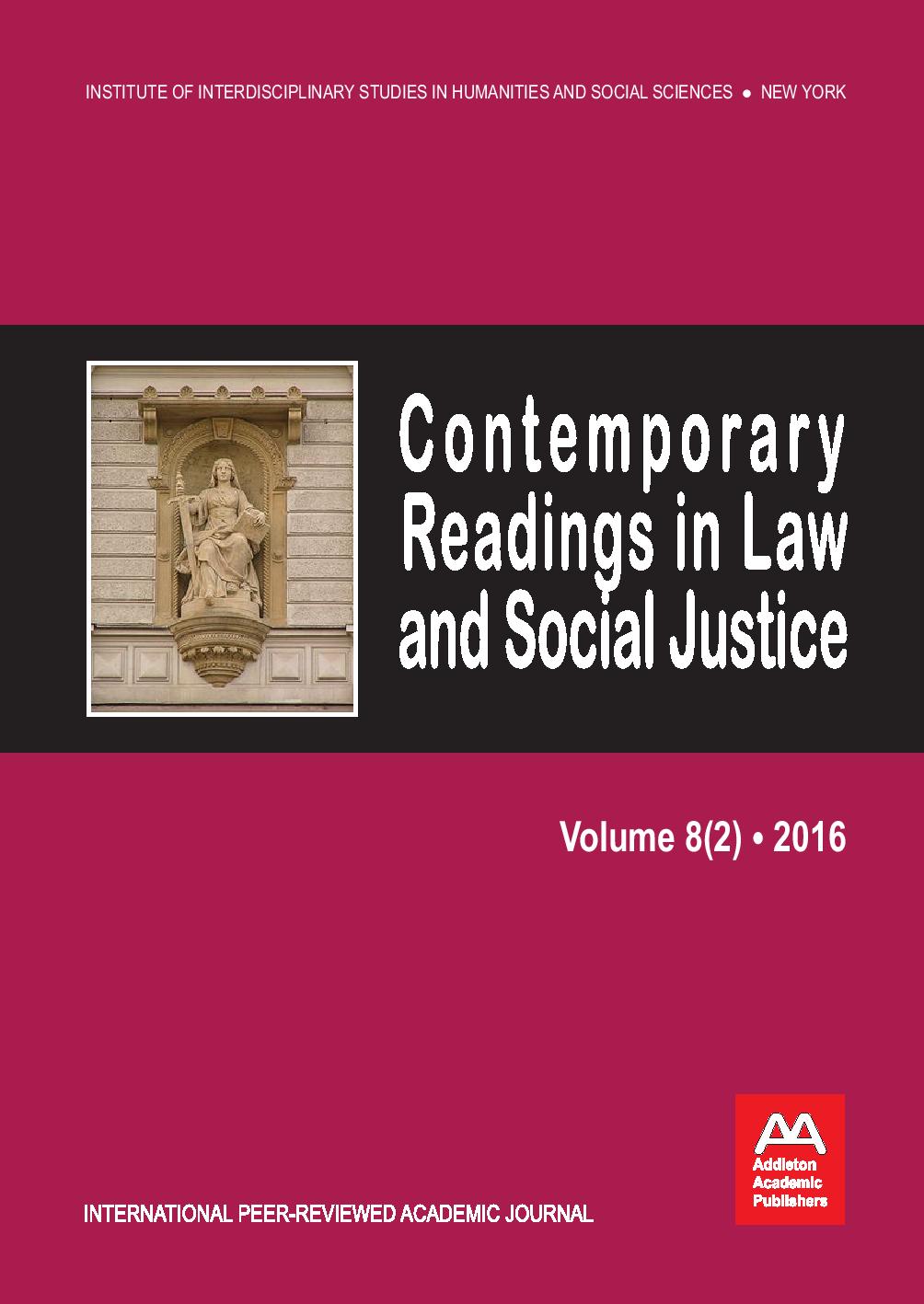BUREAUCRATIC ACTIVISM AND COLOMBIAN COMMUNITY MOTHERS: THE DAILY CONSTRUCTION OF THE RULE OF LAW
BUREAUCRATIC ACTIVISM AND COLOMBIAN COMMUNITY MOTHERS: THE DAILY CONSTRUCTION OF THE RULE OF LAW
Author(s): Lina BuchelySubject(s): Gender Studies, Law, Constitution, Jurisprudence, Civil Society, Public Law, Sociology of Law
Published by: Addleton Academic Publishers
Keywords: bureaucratic activism; rule of law; CWH; community mothers; Colombia;
Summary/Abstract: Whereas mainstream literature affirms that the rule of law is an abstract concept that comes from democracy and liberal institutional systems, people in the local Global South do not experience this certainty. In some ways, the rule of law is a product of the daily life transactions and bargains of social actors. This article analyzes the case of community mothers as street-level bureaucrats who produce the rule of law in their local spaces, within an institutional or democratic mechanism. This case study of community mothers, carried out between June 2012 and February 2013, shows how street-level bureaucrats use the rule of law as a tool of empowerment. The fieldwork for this study uses ethnographic techniques such as observations of the functioning of CWHs, interviews with community mothers, Colombian Family Welfare Institute (ICBF) personnel, and program beneficiary mother, as well as an analysis of the documents that deal with the social program. The results of the fieldwork show the emergence of an undocumented social policy directly constructed by the community mothers and that is related to the protection of the time and opportunities of neighboring women and the conciliation of reproductive and productive work, more than it is to child development as set out by the state. In this sense, the social policy created by street-level bureaucrats is contrary to the policy designed by the state, despite it being included in its scope of operations. Community mothers display an undocumented agency that develops a feminist agenda of helping fellow women, contrary to the government agenda that promotes childcare and the early childhood program policies. In this sense, the fieldwork undertaken portrays mothers and children as conflicting actors. Despite this, the social policy hides this conflict reproducing the normative image that ideologically links mothers with their children. The results of this research project reveal, therefore, that the local agents as the street level bureaucrats play an unexpected role in the power dynamics inherent to the rule of law.
Journal: Contemporary Readings in Law and Social Justice
- Issue Year: VIII/2016
- Issue No: 2
- Page Range: 196-242
- Page Count: 47
- Language: English
- Content File-PDF

